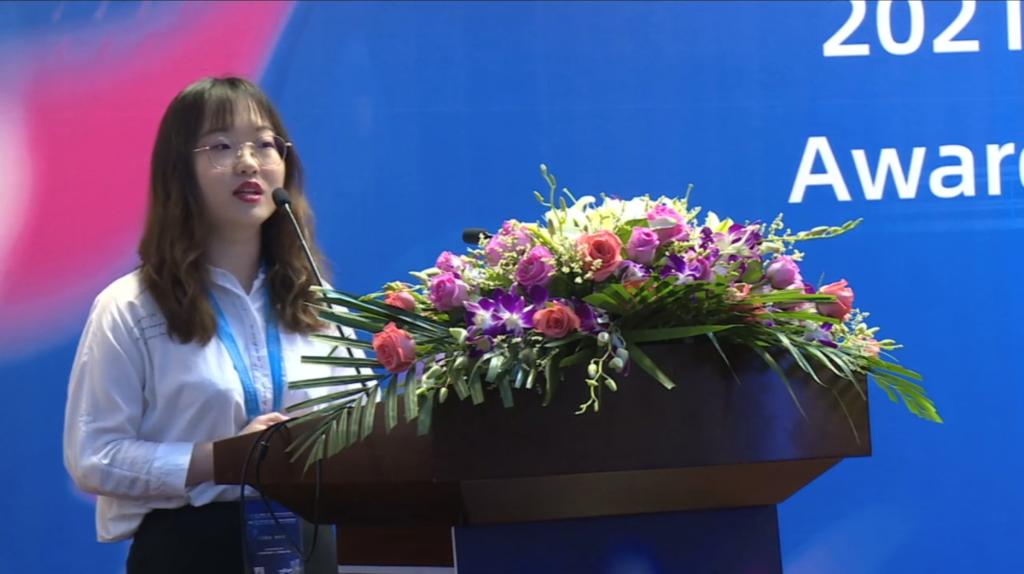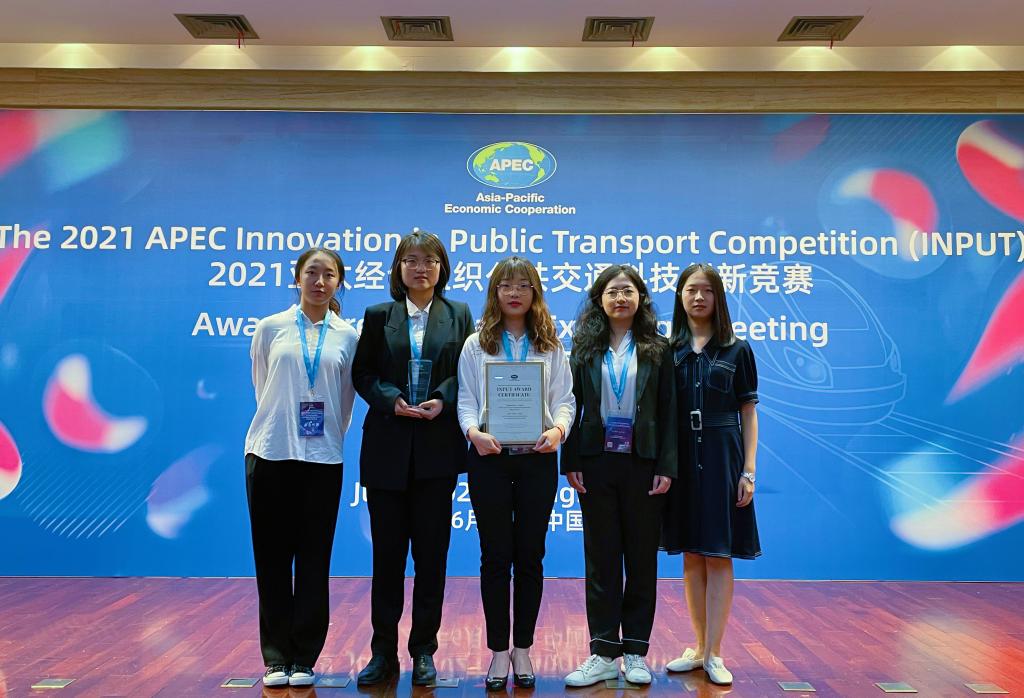On June 19, 2021, the awarding ceremony and exchange meeting of the Asia-Pacific Economic Cooperation (APEC) Innovation in Public Transportation (INPUT) Competition was successfully held in Shanghai University of Engineering Science. The team composed of Mian Wu, Lin Zeng, Shuiying Li, Lingjie Zou and Zhuo Ma, participated in the competition with the project of " Break the Impasse on Bus System Benefits: Evaluating and Dispatching Methods ", and finally won the second prize.
With the rapid growth of the national economy and the improvement of living standards, people’s travel demand is mushrooming, causing serious traffic jams and air pollution. Public transit priority has become a worldwide consensus, which can reduce the use of private motor vehicles and promote healthy and sustainable urban development. However, with conventional single-type and fixed-route buses following the fixed departure interval, the relatively fixed supply cannot meet the time-varying travel demand. Bus overload and empty driving are both happening. Nowadays, in the era of big data and the Internet of Everything, many refined management methods and innovative service modes are springing up. The accurate and usable evaluating system for supply-demand matching and space-time resource utilization, and the intelligent dispatching methods may become an important breakthrough to improve the efficiency of the public transit system.
Comprehensively considering the two dimensions of time and space, two core indicators of Supply-Demand Matching and Space-Time Occupancy are proposed to describe the degree of matching of travel demand and transportation capability and the degree of occupation of road resources. The proposed dual-objective evaluating system can effectively assess the waste of transportation capability and road resource caused by inefficient dispatching schemes. Furthermore, a new intelligent bus dispatching method and a dispatching system are developed, which can adjust the supply dynamically according to the fluctuating demand. Flexible departure intervals, different bus types and stop-skipping strategies are adopted. Thus, the limited road space-time resources can be used effectively to serve actual demands. The efficiency, level of service and sustainability of the public transit system are expected to be truly improved.

